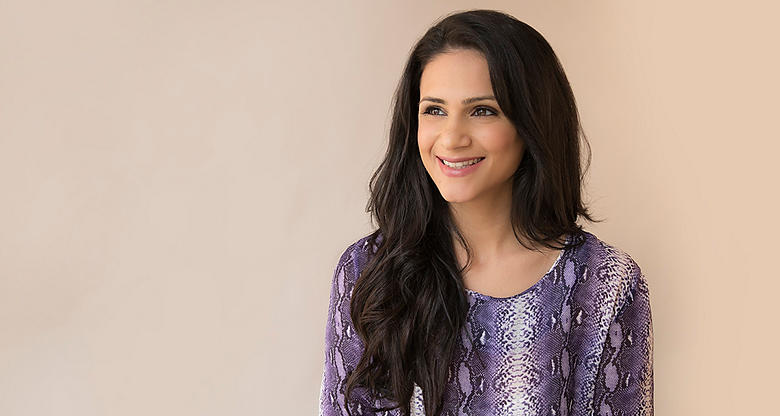When sisters Naomi Vowels and Frances Atkins were new mothers, they wanted to do something different following intense corporate careers. They turned their attention to an area they were both passionate about - the potential for technology to transform social impact and sustainability.
That decision ultimately led to the creation of givvable, a technology platform that helps businesses find, source and track the impact of sustainable and social spending. And having moved successfully through its early start-up phase, givvable is now working on a pilot with ten large corporate and government customers ahead of a mid-year public launch.
Events over the past year have also presented unique opportunities as initial fears the pandemic would set the sustainability agenda, appear to have been overestimated. Instead, givvable is well placed to help businesses as they diversify supply chains in the wake of global shocks, and to meet demand as more companies set sustainability targets.
The success and agility of the business to date has relied on Naomi and Frances proactively developing their own knowledge and skills as entrepreneurs; seeking out strategic partners and expanding networks; and listening intently to customer’s feedback.
Learning to be an entrepreneur
Before givvable, Frances says that the two sisters began working on side projects as their first foray into technology, with natural curiosity leading them to an entrepreneurship program at the University of New South Wales.
“We found ourselves with other aspiring female founders learning the 101 of how to build a start-up,” Frances says. “Once we finished and looked back at our careers, and the skills, experience and networks we had acquired, we thought if we are going to work on a start-up full time, we should rethink what shape it should take."
“Naomi and I took a good look at what businesses were doing and quickly identified this transition from corporate social responsibility to sustainability. This wasn’t just about philanthropy or volunteering as a way to support communities, but how businesses could apply their purchasing power.”
Naomi and Frances say that while the university entrepreneurship program provided exposure to a thriving community and the opportunity to learn from ‘entrepreneurs in residence’, being accepted into corporate accelerator programs provided insight into real business problems.
 Image source: Supplied. Naomi Vowels and Frances Atkins, co-founders of givvable.
Image source: Supplied. Naomi Vowels and Frances Atkins, co-founders of givvable.
From knowledge acquisition to real-world application
Naomi says that givvable took a targeted approach to pitching for competitive corporate accelerator programs that would provide strategic benefits. Their criteria for navigating a broad array of programs included alignment on sustainability; reach into end markets; and an environment to test and co-create solutions to optimise the elusive product-market fit.
This resulted in givvable winning the Xccelerate2020 venture program run by CommBank’s x15ventures, as well as other programs run by Mirvac and Optus, followed by acceptance into Microsoft’s Social Entrepreneurship Program.
“I think what set us apart in applying for accelerator programs, is that we had done the 101 learning first,” Frances says. “If it wasn’t for that, we wouldn’t know things like we should be testing a product as soon as you can rather than waiting for it to be finished.”
“The x15ventures Xccelerate2020 program has reach into millions of SMEs - the very businesses we want to help,” Naomi added. “They partner with Microsoft and KPMG and both those organisations are also very forward thinking in terms of sustainability which is complimentary to what we do.”
Frances also explained that through the process of continuously pitching, the founders could hone their message about the business’ purpose and problem it solved. “We have had to pitch in front of a crowd of people on so many occasions, each time refining and refining,” Frances says. “What then sets you apart is that you can better communicate the solution compared to a start up without that experience.”
Changing gears as the business grows
Naomi says that for the first six months, she and Frances spent most of their time talking to potential customers, gathering feedback and insights and absorbing as much as they could. “We were picking up on words and phrases to identify common problems among customers,” Naomi says. “Once we had identified that, we could move to the next phase of incorporating feedback into the product development cycle."
“This shift required a big change in the skills we were using. When you are more confident in your solution, you need to keep listening, but you need to start making decisions on what feedback is valuable and what can be left aside. We moved from passive listening to being deliberate in our approach.”
For Frances, advancing their objectives as a start-up also means traversing many roles, and moving from a micro to macro view - constantly to ensure the operations and strategic decision-making remains on track.
“The hardest thing about leadership in a start-up is that you have to do everything. We are not designers, but we are doing mock-ups for our technology solutions, we are not software engineers but are helping build algorithms. It’s a whirlwind, but if I had to design my dream job, this would be it.”
For Naomi and Frances, the upcoming public launch of the platform is just another step in their growth trajectory, and they intend to continue developing their skills and networks as the business moves into the next phase.
“We want to grow our customer network, the number of suppliers on the platform, and move into offshore markets,” Frances says. “We’re also learning about the different use cases of the platform."
“Initially we were targeting sustainability and procurement professionals but more and more we are talking to people in finance and those conducting transactional due diligence. These are exciting areas and huge growth markets.”
Sign up to the Women in Focus newsletter for updates on our community and events, and more content like this.







